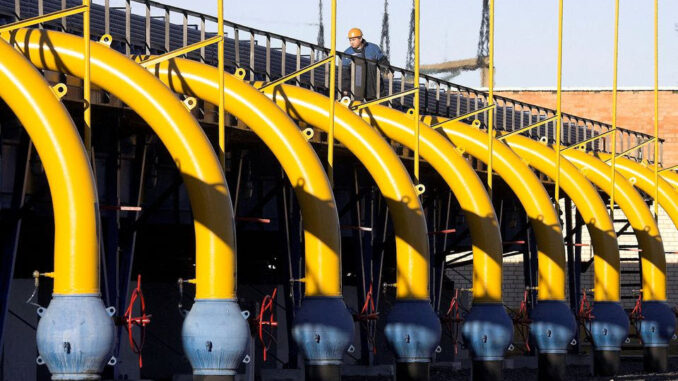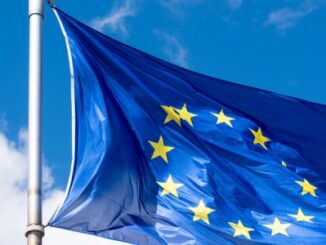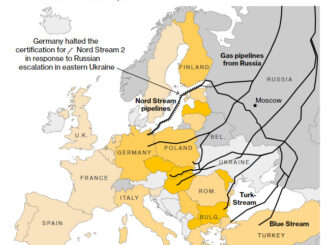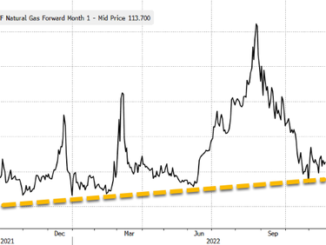
Several European Union nations are pushing for clearer guidance from the bloc on Russia’s demand to pay for gas in rubles, saying the current advice is too ambiguous.
The European Commission told the ambassadors at a closed-door meeting Wednesday that it will fine-tune the wording of its guidelines, according to people familiar with the discussions. A number of countries who raised the issue want the commission to clarify that buyers don’t have any workarounds to acquiesce to the Kremlin’s demands, the people said.
The confusion comes after Russia cut off gas sales to Poland and Bulgaria, which refused to pay in rubles. At the same time, four European companies went ahead and made payments in rubles, although it’s not clear whether they were from EU countries. Others are prepared to open ruble accounts.
Poland and Bulgaria — backed by Greece, Slovakia, Denmark, Latvia, Belgium, Austria, Hungary, and Finland — complained in the meeting about the lack of clarity and details in some of the commission guidelines, according to the people. Poland said the selective interpretation of the Russian decree was a tool for Russia to break EU solidarity.
Poland and Bulgaria also told the other EU ambassadors that they benefited from alternative supply arrangements and that Moscow’s move didn’t pose a direct threat to their economy at this stage, the people said.
The bloc has been preparing for the weaponization of energy deliveries to Europe to avoid interruption of gas flows. Germany and Greece noted that they were ready to provide supplies to Poland and Bulgaria.
Russian President Vladimir Putin’s decree stipulates that European gas buyers open two accounts with Gazprombank JSC — one in a foreign currency and one in rubles. Gazprombank would then be responsible for converting the foreign currency into rubles and transferring the money to Gazprom. The EU said that Russia’s process for any exemptions remains unclear.
In a question-and-answer document published last week, the EU said that the Kremlin’s payment procedure would be a breach of contract, as well as EU sanctions. But the bloc also said payments may be allowed in euros and dollars as long as any legal obligations end once the initial euro or dollar payment is made to Gazprombank.
Source: Bloomberg



